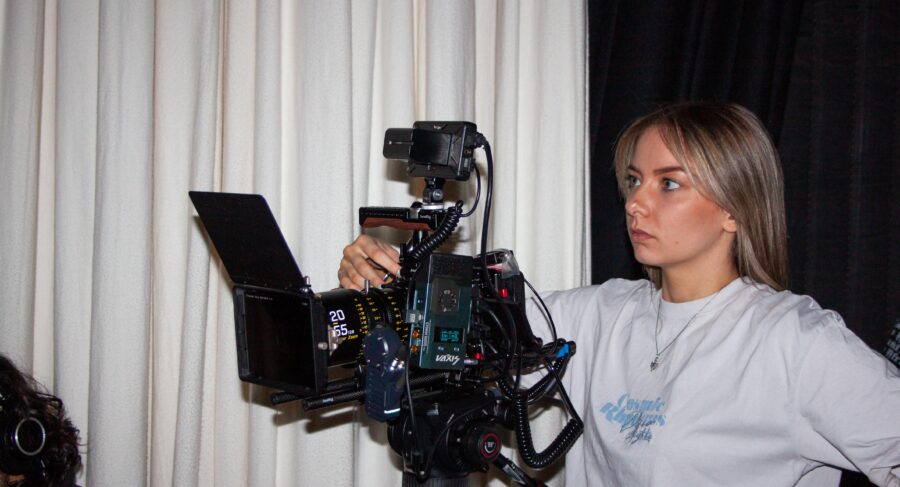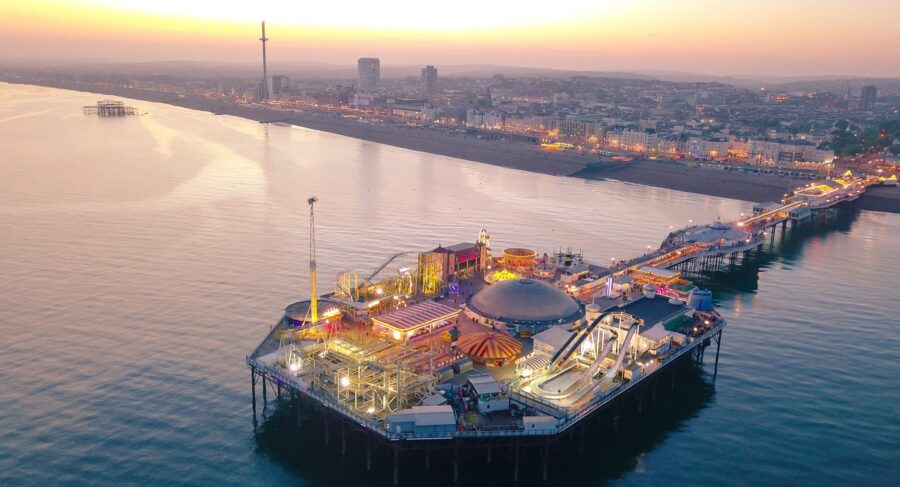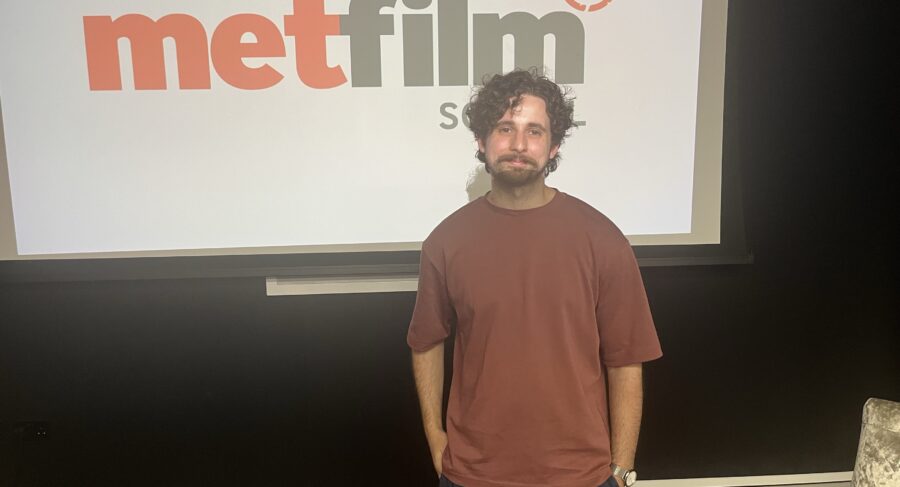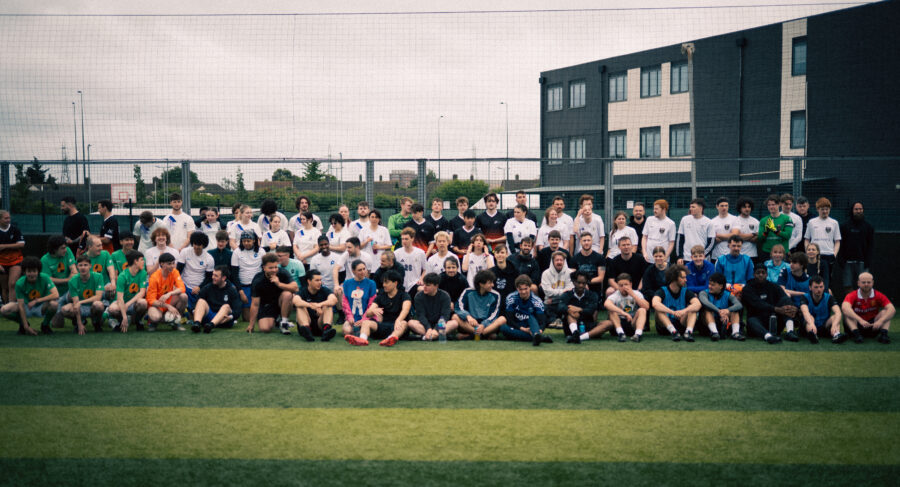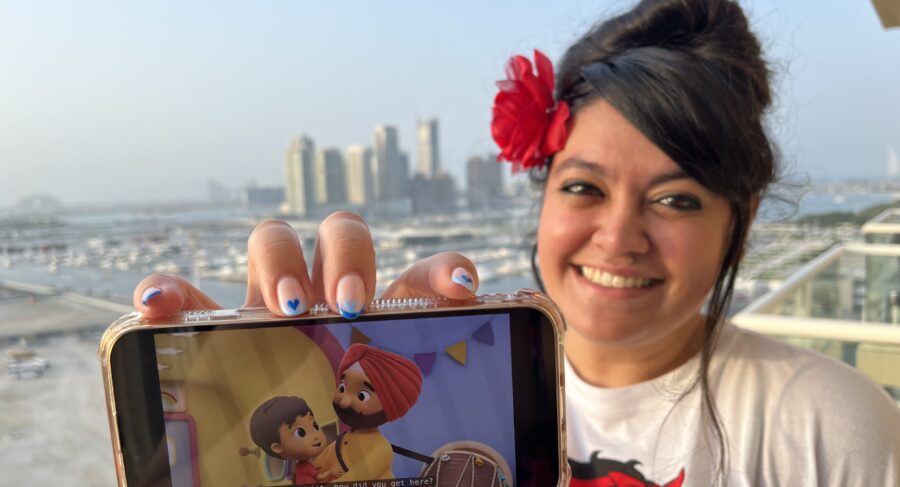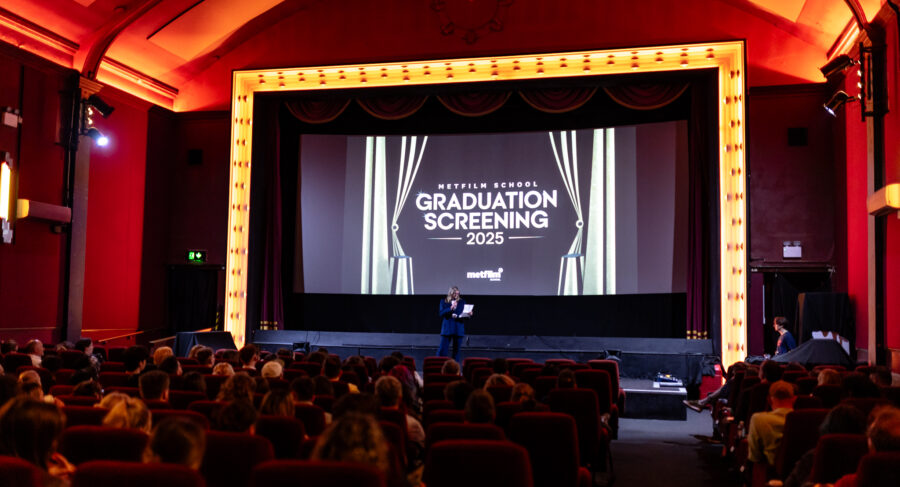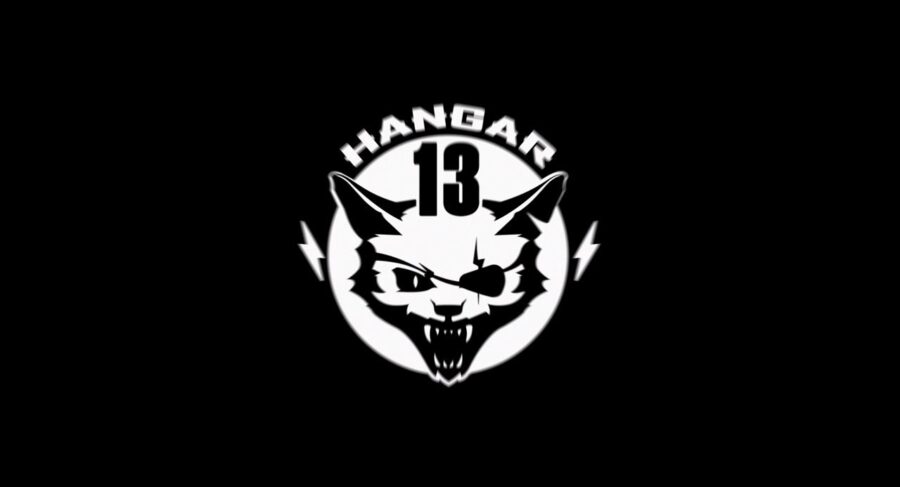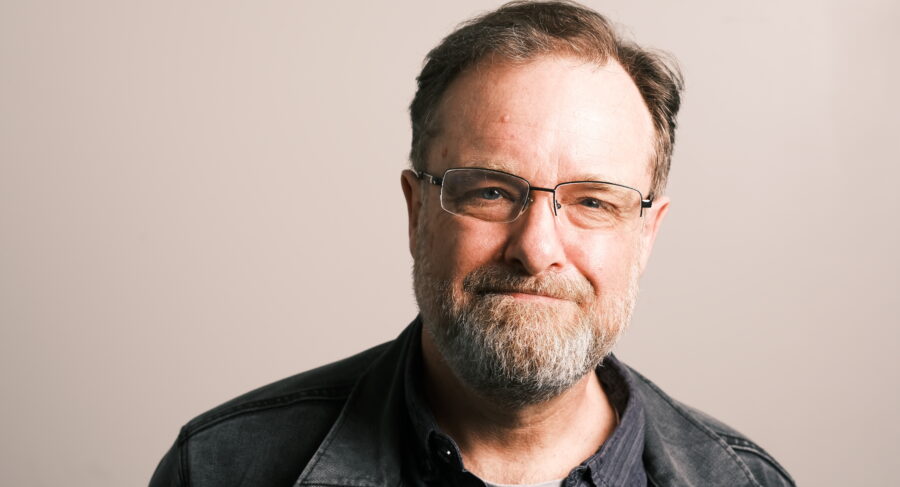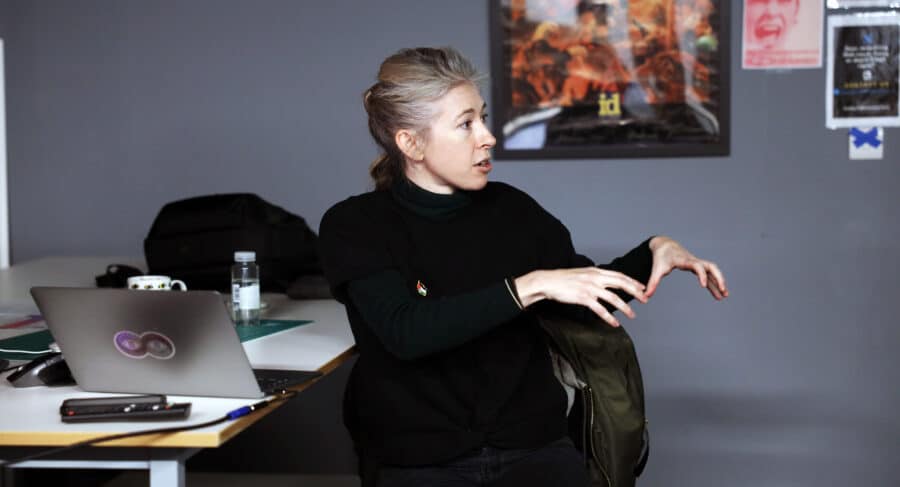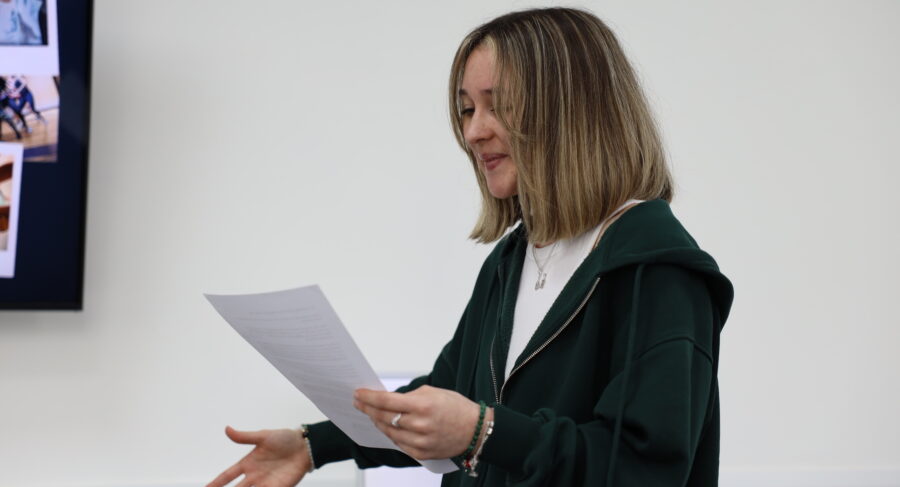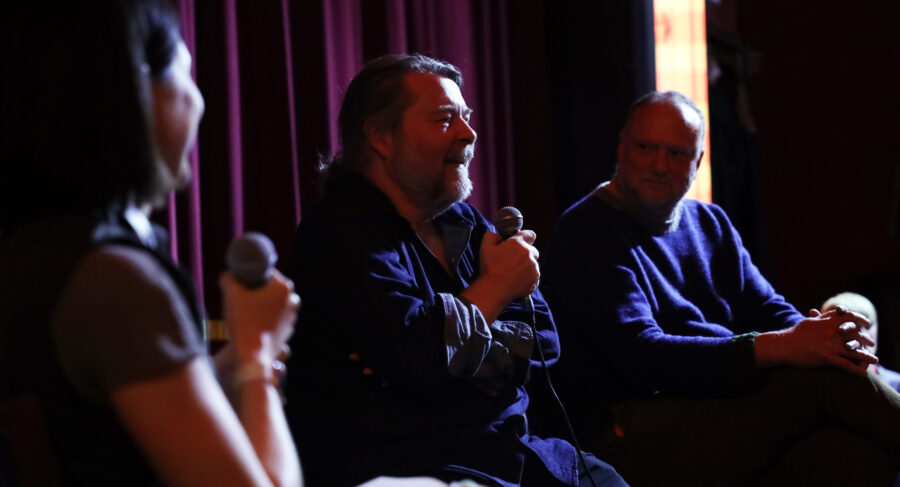Berlin tutor Matthias Luthardt on upcoming feature film ‘Luise’
By Elise Czyzowska
25 July 2023
First published in 1922, D.H. Lawrence’s novella The Fox tells the story of Nellie March and Jill Banford, two women living on a secluded farm in England during World War One. Across the story, their peaceful life is disrupted by an elusive fox, and then by a young man, Henry.
After reading this story, BA tutor at our Berlin campus, Matthias Luthardt, was inspired to make Luise, his latest feature film starring Luise Aschenbrenner, Christa Theret, Leonard Kunz, and Aleksandar Jovanovic. With the film currently showing in France, and coming to cinemas in Germany from August 31st, we spoke to Matthias about the making of the feature, as well as what he took from D.H. Lawrence’s original story…
What was it about The Fox that caught your attention?
First of all, the intimacy and sensitivity in which D.H. Lawrence described the symbiosis between his two female protagonists really intrigued me. The simple idea of a relationship that gets disturbed by a man – it felt like a very modern and timeless setup to me, and one that could allow the audience to look closely at gender dynamics and the power relationships that define them.
When adapting from written material, how do you approach translating the words into visuals?
D.H. Lawrence’s language generated a lot of images in mind just from reading the novel. These images somehow turned into a storyboard, which felt pretty cinematic to me.
Generally, I’m more interested in creating moods and non-verbal interactions between characters than I am having them deliver lines and showing talking heads. If there’s dialogue that can be replaced by an image, gesture, or simple action, I prefer that.
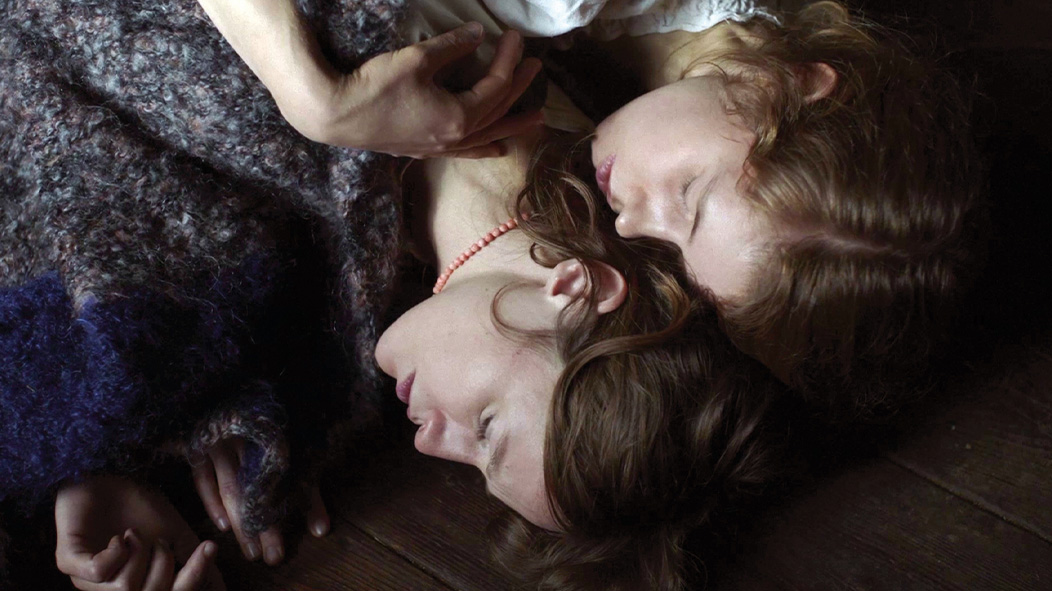
A review for Luise described it as ‘classical filmmaking at its most restrained and refined’. Why did you land on a minimal chamber drama for the film?
The story set-up itself, already established by D.H. Lawrence, is quite restrained and minimalistic. We chose a visual style that doesn’t try to impress the audience with a contemporary touch and perspective. On the contrary: we wanted to keep it humble, and to allow the audience to look into this world on the level of the protagonists.
Wartime movies have gone through many iterations, from pro-war epics, to harrowing tragedies. How does Luise use the setting of war to highlight its themes?
In Luise, the external circumstances of the ongoing war are the starting point of the triangle, with ‘enemies of war’ under the same roof, trying to coexist and overcome prejudice, distrust, and hostility.
The threatening circumstances force the three characters to not only coexist, but to communicate and cooperate with one another – a challenging task, especially because of the confined space, which can easily lead to cabin fever.
Over the course of our story, the ‘enemies of war’ reveal themselves as human beings, all with their own fears, dreams, and desires.
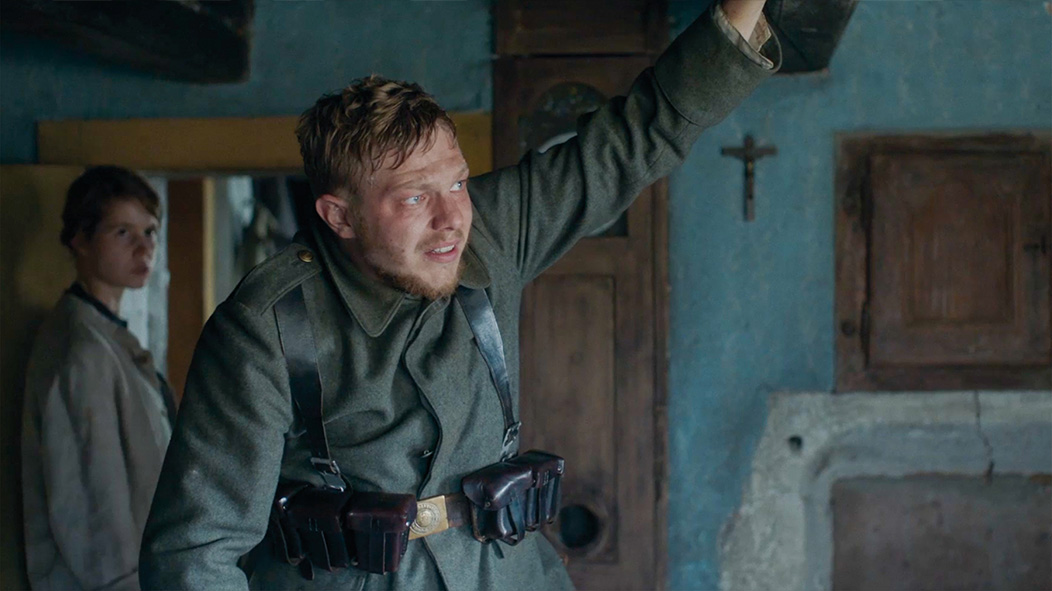
You mention that current news had made you think about the themes of The Fox – in exploring these characters, how did they influence or inform your own views?
When it comes to finding financial partners for a historical film, you’re often confronted with questions of ‘What is modern about this story?’ or ‘How relevant is this to our present time?’. Personally, I could easily relate to the themes in The Fox, and felt that a historical set-up allowed us to look at the timeless and universal topics from a distance.
It raises the question: what has actually changed since 1918? Have we learnt from the Great Wars and done everything we can for a peaceful coexistence of different nations both inside and outside Europe? How come wars are mainly orchestrated by men? How is it possible that in our ‘civilised’ world, we still struggle with patriarchal structures? And with homophobia?
Finally, alongside film, you’ve also made tv documentaries on the history of European cinema. Can you share any films that inspired Luise?
When exploring the topic of the male vs. female gaze, I loved the documentary Women Make Films: A New Road Movie Through Cinema (Mark Cousins, 2018). Over 14 hours long, and full of inspiring examples, I highly recommend it!
I also re-watched some films by Robert Bresson, who I consider to be a master of austere and candid filmmaking. He was more interested in what the actors hide from us than what they show us. He both invites and allows us to internalise the emotions generated by the story and the conflicts we’re witnessing.
- Find out more about Matthias Luthardt’s upcoming film, Luise, here.
- Matthias teaches on our BA Practical Filmmaking and BA Screen Acting degrees at MetFilm School Berlin.
- Explore MetFilm School Berlin at our next Open Days.
Photo Credits included in this blog: Salzgeber. Thanks to Matthias Luthardt for image permissions.

